
State Representative Scott Slater will introduce legislation next week that would end marijuana prohibition in Rhode Island and replace it with a system in which marijuana is regulated and taxed similarly to alcohol. Senator Josh Miller will enter similar legislation in the Senate. The Senate bill already almost half the Senate as co-signers and Slater has said that in conversation with leadership, Speaker Mattiello has indicated that he is open to the idea.
“Our current policy of marijuana prohibition has created an underground marijuana market that is entirely out of our control,” Slater said. “Most of the problems associated with marijuana stem from its illegal status. Rather than continuing to ignore these problems, let’s adopt a sensible regulatory system that addresses them.”
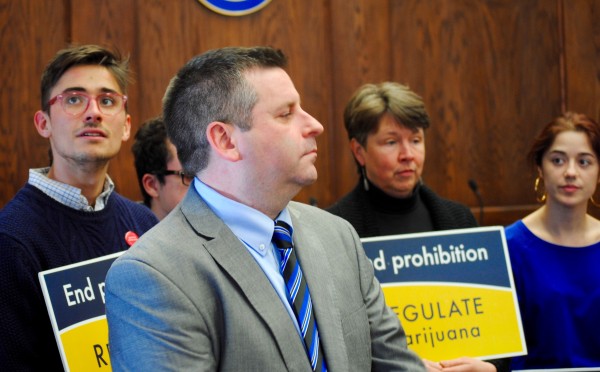
Slater also said, referencing Governor Gina Raimondo’s proposed tax on medical marijuana, “If Rhode Island wants marijuana to be a source of revenue, it should regulate and tax the hundreds of millions of dollars in adult marijuana sales currently taking place in the underground market. It should not impose onerous fees on seriously ill people who use marijuana for medical purposes, as our governor recently proposed.”
Senator Miller, chairman of the Senate Committee on Health and Human Services, issued a statement saying, “We should regulate and tax marijuana in Rhode Island and treat it similarly to how we treat alcohol. In a legal market, products would be tested, labeled, and packaged appropriately, and consumers are protected from the black market where they can be exposed to other more harmful illegal substances. Our legislation would put the illegal marijuana dealers out of business while generating tens of millions of dollars in tax revenue that we can invest in our communities.”
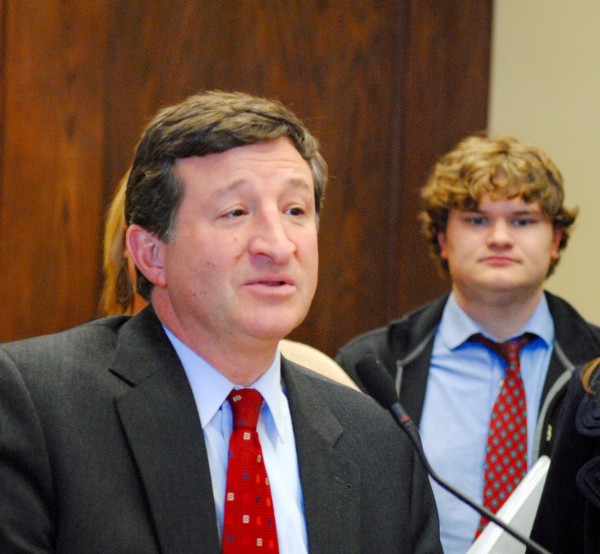
Professor Andrew Horwitz, a criminal defense lawyer and co-chair of Regulate Rhode Island spoke about the importance of decriminalizing marijuana, noting that continued criminalization,”devastates communities of color.”
“Most Rhode Island voters support ending marijuana prohibition and regulating marijuana like alcohol, and the level of support grows every year,” Horwitz said. “We hope this year that legislators will demonstrate leadership on this issue and replace our destructive and wasteful policy of marijuana prohibition with a system that makes more sense.”
Horwitz also spoke briefly about Governor Raimondo’s plan to tax medical marijuana, calling the move, “fundamentally cruel” and an “extraordinarily misguided approach.”
The Marijuana Regulation, Control, and Taxation Act would allow adults 21 and older to possess up to one ounce of marijuana and grow one mature marijuana plant in an enclosed, locked space. It would create a tightly regulated system of licensed marijuana retail stores, cultivation facilities, processing facilities, and testing facilities and direct the Department of Business Regulation to create rules regulating security, labeling, and health and safety requirements. It would also establish wholesale excise taxes at the point of transfer from the cultivation facility to a retail store, as well as a special sales tax on retail sales to consumers.
Fifty-seven percent of Rhode Island voters support changing state law to regulate and tax marijuana similarly to alcohol, according to a survey conducted in April by Public Policy Polling. Only 35% were opposed.

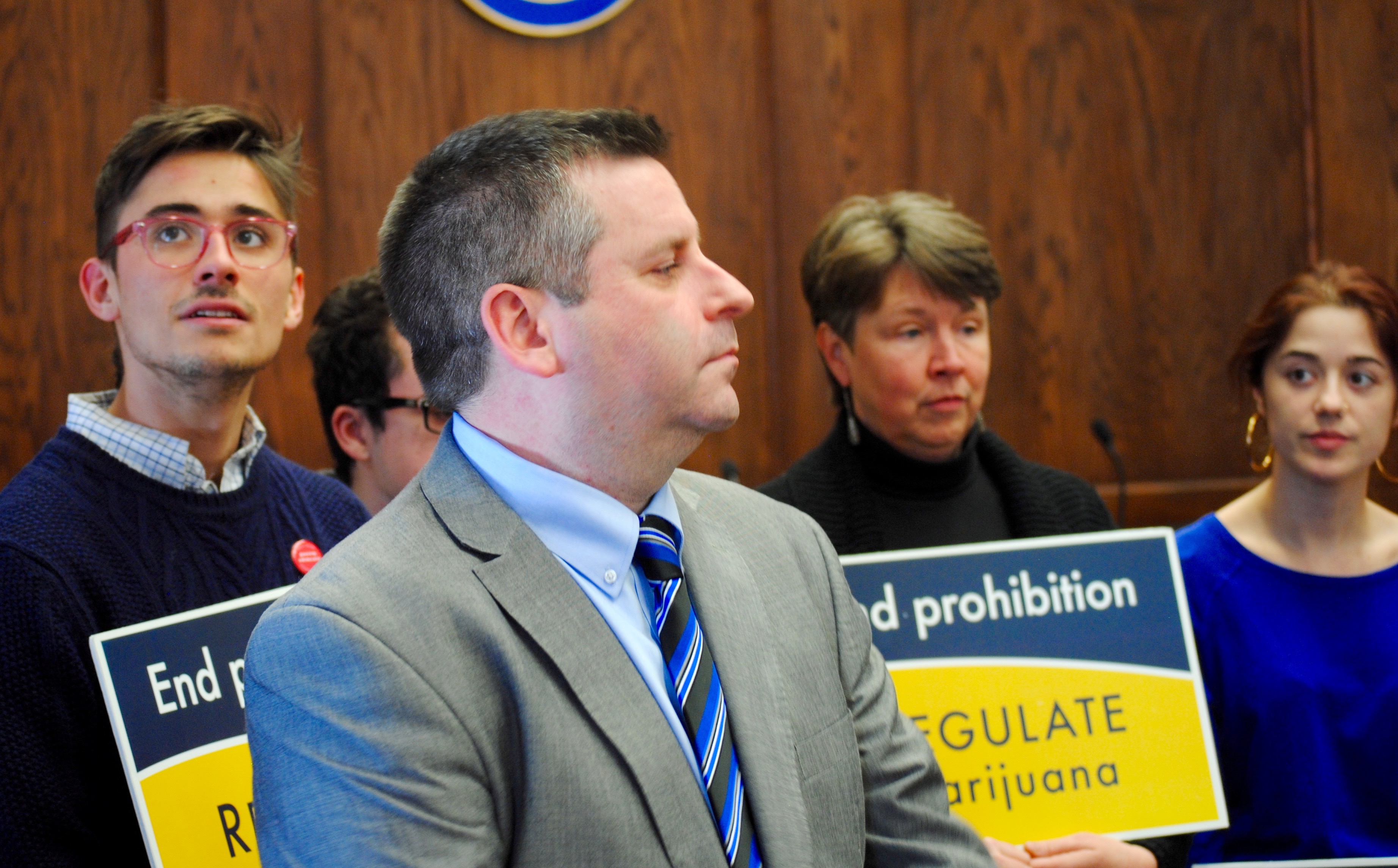

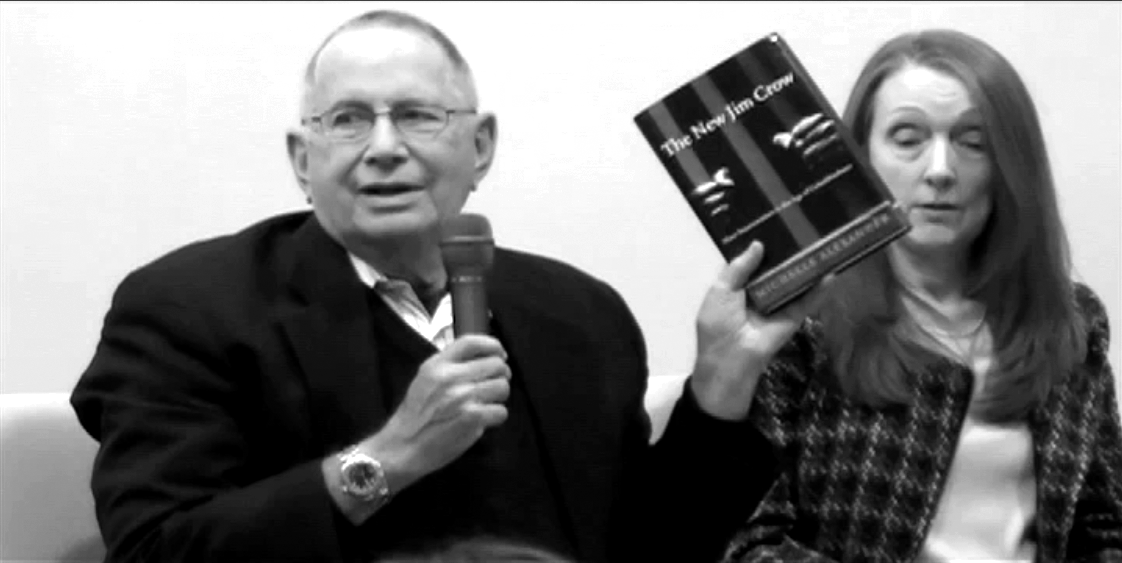

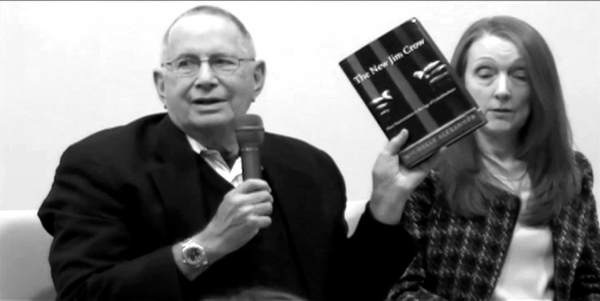 Dr. Lewis joked that this being Brown University, he couldn’t let the audience go without giving them a reading assignment. He recommended the following:
Dr. Lewis joked that this being Brown University, he couldn’t let the audience go without giving them a reading assignment. He recommended the following: